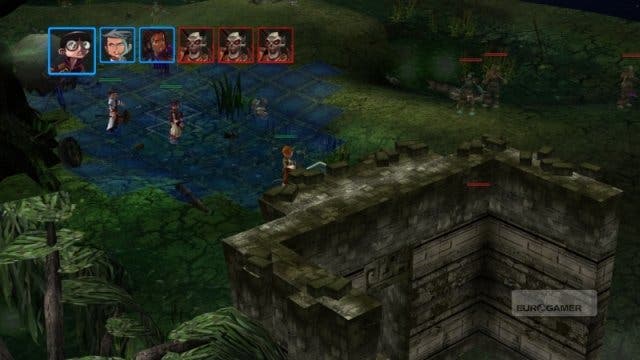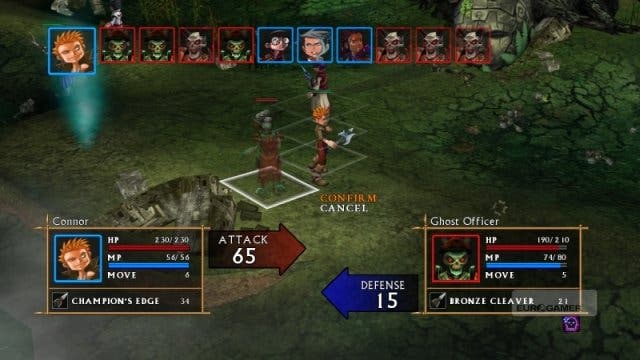Vandal Hearts: Flames of Judgment
An old flame.
Is it possible to exhaust a genre's potential? There may be only seven stories to be told in the world, but in the multitudinous hues of character and scenario it's possible to dress them in infinite ways - and so keep our bookstores stocked with novelty.
Not so game systems, which in their stark mathematical and tactile nature are near impossible to disguise. Tetris is Tetris, no matter what colour the blocks or which imagery is used for the background. And so it seems feasible that some genres can be exhausted, mined of potential permutations to the extent that there are simply no truly new games to be made in that particular form.
It's an argument given credibility by the story of the strategy RPG, that Japanese sub-genre that marries chess with Tolkien and anime eyes. From its origins in the Shining Force series through Yasumi Matsuno's Ogre Battle games up to his masterpiece, Final Fantasy Tactics, the genre quickly pressed up against its self-imposed boundaries, leaving precious little room for any newcomer to manoeuvre.
More recently Nippon Ichi smashed through these constraints with its dazzling Disgaea series, opening up dizzying potential for customisation and pushing the conservative framework in new and interesting directions. But as a result the strategy RPG arguably became something else. Even if it was evolution rather than revolution, a great many players were left disorientated and disenfranchised by the complexities it introduced.

In the face of Nippon Ichi's bold innovation most Japanese developers walked away from the genre, and those who didn't consigned their creations to orthodoxy and handheld formats. The genre, it seemed, had been exhausted.
It's into this landscape that Konami steps - resurrecting its SRPG property from the genre's PlayStation heyday, handing development over to a Western studio and choosing to publish to PlayStation Network and Xbox Live Arcade, where Vandal Hearts: Flames of Judgment joins Band of Bugs as just the second grid-based tactics game on the service. And while there's a lot of expectation on the game's shoulders, both for fans of the original duo of Vandal Hearts titles (to which this is a narrative prequel) and for fans of the genre, poorly-served for so long, this is a game that does little to refute the argument.
The signs ahead of release have been worrying. The game was originally scheduled for release last autumn and a six-month delay for a downloadable title is never a good sign. Then there's the divisive art style, which in discarding the super-deformed appearance of the original games has been poorly received. There's no denying that while these visuals are idiosyncratic - a sort of 3D Braid-alike, both functional and awkwardly pretty, they exhibit few of the defining characteristics of their forebears. But once you get your hands on it you discover the developer has stuck more closely to formula, a wise decision that ensures that, while the game's innovations are meagre, it remains solid and serviceable as an SRPG.

You control soldiers fighting battles on gridded 3D environments, taking it in turns to move units, attack and defend. As you play you must consider the environment and your unit's position in relation to an enemy, ensuring that you're within striking distance if you want to attack or that you're far enough away from their ranged weapons to defend. In general, you'll clear a stage if a member of your team is the last man standing on the battlefield.


